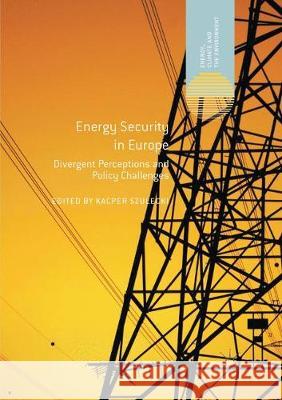Energy Security in Europe: Divergent Perceptions and Policy Challenges » książka
topmenu
Energy Security in Europe: Divergent Perceptions and Policy Challenges
ISBN-13: 9783319879123 / Angielski / Miękka / 2018 / 351 str.
Kategorie:
Kategorie BISAC:
Wydawca:
Palgrave MacMillan
Seria wydawnicza:
Język:
Angielski
ISBN-13:
9783319879123
Rok wydania:
2018
Wydanie:
Softcover Repri
Ilość stron:
351
Oprawa:
Miękka
Wolumenów:
01











